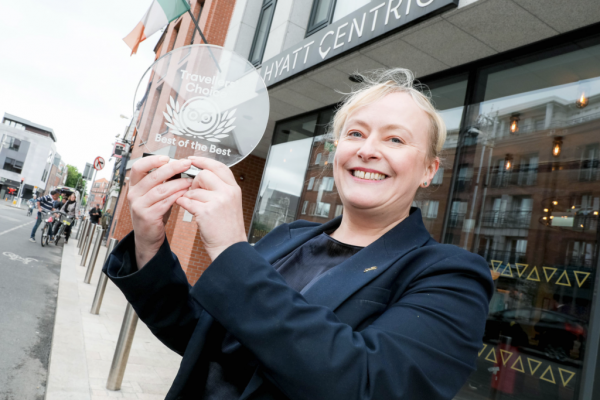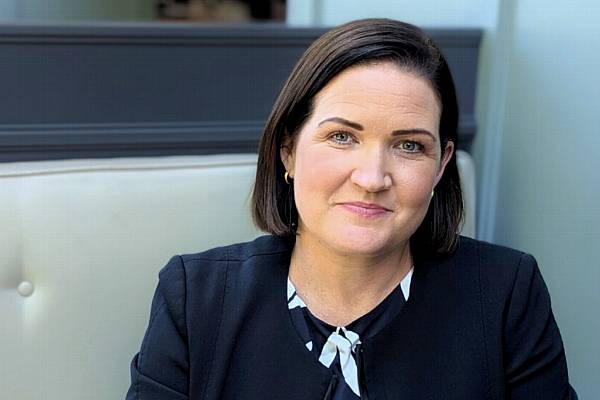High-quality sound is the smart choice for successful hospitality businesses. James King, director of marketing at Martin Audio, explains why investing in your sound equipment is a good decision for hospitality businesses looking to improve their guests’ experience.
This article was originally published in the Winter 2023 issue of Hospitality Ireland Magazine, in December of 2023.
For most hospitality business owners, the sound system that they choose to have installed in their venue is seen as one of the least important decisions that they will need to make. It is a necessary expense, as they need to play music to their guests, make announcements, or play out commentary to match the game on the screens – but does it really matter that much what black box you stick up on the wall? Honestly, yes – it does.
Obviously, working for a premium manufacturer like Martin Audio, whose loudspeakers can be found everywhere – from the major stages at Glastonbury to the best clubs, bars, hotels and restaurants all over the world – I could be seen as somewhat biased in making this statement.
Overriding Factor
However, there is a wealth of data out there that highlights why audio is important for a hospitality business and how quality is an overriding factor. First of all, let’s look at why it’simportant to have music playing in the first place. There has been a huge amount of research covering the influence that music has on people and the way they make their buying decisions. For example, a UK study showed that playing classical music to diners in a restaurant encouraged them to order more expensive items from the menu. In that same study, more than two thirds of people admitted to having left a venue when they realised that no music was playing.
There is also evidence that points to music having a therapeutic benefit. An interesting recent review of international research shows that music can make a positive change in health-related quality of life. There has always been anecdotal evidence around this, but comparing the findings of 26 separate studies that show this positive correlation should be an important driver for hotels and spas, and vindicate some of the therapeutic decisions that they have made.
Quality Of Experience
Keeping people in your venue, providing a health benefit, and encouraging customers to spend more money are clearly solid business reasons to invest in a sound system, but surely any system would do that job? This is where the argument over quality comes in, and this can be far more subjective.
The research around the effects of audio quality has been very focused on consumer products, rather than those typically used in a hospitality setting.
However, there are significant parallels that can be drawn from it. As a way to overcome personal taste in academic studies, two related measures have been created: quality of experience, and its audio-specific equivalent, overall listening experience.
Background Music
Data shows that, the lower the audio quality, the lower people rate their overall listening experience. This can apply to everything from the source files that you are playing (lower-quality MP3 files versus high-resolution audio, such as WAV or FLAC files) to the equipment that you use to play it out.
Added to this, background music is one of the key factors that helps to define quality of experience. Combining these two factors provides a logical outcome: that hospitality venues should be looking at the quality of their background music systems as part of a wider strategy to enhance customer experience and therefore improve overall business performance.
Premium Sound System
Away from the research, another important argument that is often made focuses on the longevity of a sound system and the value that you can expect to see from your investment. It is usually the case that if you invest in a premium brand, your sound system will last for well over a decade, and often even longer. Investing in a cheaper solution can often lead to the need to replace your sound system several times in that same period. This means that you would end up paying several times more in the long term, replacing your cheaper solution, than you would have done if you had invested in a premium system in the first place.
Of course, it’s easy to say that hospitality venues should invest in a premium sound system – it’s much harder for venue owners to know what a premium system looks and sounds like. One of the first things to do is to work out the sound that you like. Premium products are made all over the world and are often voiced to their home market. The differences may be subtle, but listening to a track you know well during a demo will tell you if you actually like the sound of the system in which you are investing.
Building on this, a common mistake that a lot of venue owners make is to base their decisions on the sound equipment that they have at home. This is something to be cautious of. A number of popular consumer brands do have professional offerings, but the value that they have in consumer electronics doesn’t always translate across to the professional setting.
Proper Consideration
A better alternative is to spend time visiting different venues to hear for yourself what sounds good in a setting similar to your own. Your AV integrator should also be able to help with this, as s/he can point you in the direction of reference projects on which s/he has worked, while all manufacturers will have case studies on their websites to highlight the different settings where their product range has been successful.
While selecting your sound system may never be seen as a high priority for hospitality venue owners, it is certainly something that deserves proper consideration. People in the AV and professional audio industry know that a sound system is very rarely the reason why someone will visit a venue. However, it is important for hospitality professionals to understand that it can very often be the reason why they leave.








